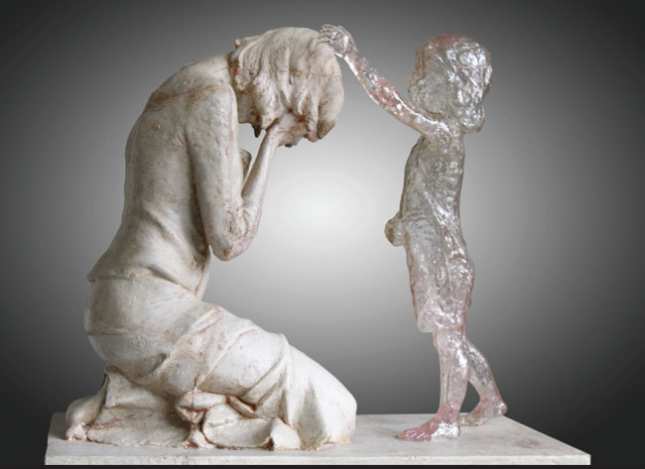
Sometimes trouble hits out of nowhere–uncalled for, undeserved–plunging our world into darkness.
Cancer. Stroke. Mental illness. Injury. Divorce. Financial loss. Death.
Our illusion of safety shatters. Chaos, not a loving God, seems to be in charge. It feels like everything is spinning out of control and that God has either left town or decided he hates you.
How do we respond in these dark moments? Many people have taken comfort in the soothing imagery of the 23rd Psalm (“The Lord is my Shepherd”), but in the midst of severe afflictions, the ominous phrase about “the valley of the shadow of death” can feel far more real than the peaceful pastures.
During a difficult time several years ago, I was praying one morning when I felt the Holy Spirit distinctly urge me to read Psalm 23 “in the dark”: imagining it all taking place in darkness instead of daylight. I was a bit bemused at the idea, but decided to give it a try.
And so I began:
The Lord is my shepherd, I shall not want.
He makes me lie down in green pastures …
Stop. Lights out.
In an instant, I go from being a sheep contentedly drowsing in the soft, deep grass of a sunny pasture, my Shepherd lingering nearby, to being swallowed by darkness, only able to see a few feet in any direction. The grass fades from green to sickly grey. Predators could be creeping up on me and I’d never see them. Worst of all, my Shepherd has become lost amidst all the strange and menacing shadows of the night.
It’s the exact same pasture as before, but my inability to see changes everything. Can I trust that my Shepherd is still near?
He leads me beside quiet waters.
He restores my soul;
He guides me in the paths of righteousness
For His name’s sake.
Walking in the dark, I have no way of knowing that I’m safe, near the calm water I need to slake my thirst. Instead, in my fear-charged anxiety, it’s easy to imagine that my next step might plunge me into deep rapids to drown, or off a cliff to my death. I’m being led by the Shepherd’s voice, but I still can’t see him, and I don’t know where he’s taking me.
Even though I walk through the valley of the shadow of death,
Ah, here it is; the big test. This is where my fears reach a crescendo. Death is on every side, the sounds and smells of wolves and blood assail me. I’m blind, helpless, with only one resource: faith in the unseen Shepherd who urges me to keep walking toward his voice.
I fear no evil, for You are with me;
Your rod and Your staff, they comfort me.
But in this most dreadful of times and places, there finally comes at least a hint of hope: the thud of a thick rod followed by the sharp yelp of a wolf being crippled, then the soft, unexpected touch of a staff along my side, gently pressing me back onto a smooth path. In the darkness, these small evidences of the Shepherd’s tender care are reassuring. I find my faith rising. Even in the dark.
That’s where the sheep/shepherd imagery ends in Psalm 23, but the idea of the godly sometimes having to walk trustingly in darkness is repeated in Isaiah:
Who among you fears the Lord
and obeys the voice of his servant?
Let him who walks in darkness
and has no light
trust in the name of the Lord
and rely on his God. (Is 50:10)
If you are struggling through a time of darkness and anxiety, take heart. You are in good company among the saints, and you can trust the Shepherd who sees clearly in the dark. Fix your mind on what you know of this Shepherd rather than what you fear in your chaotic situation.
“…we are under pressure from every side, but not crushed; bewildered, but not driven to despair; persecuted but not abandoned; knocked down but not knocked out.” (The Apostle Paul, 2 Cor 4:8-9)
“Beloved, do not be surprised at the fiery trial when it comes upon you to test you, as though something strange were happening to you. But rejoice insofar as you share Christ’s sufferings, that you may also rejoice and be glad when his glory is revealed.” (The Apostle Peter, 1 Peter 4:12-13)
“…even the darkness is not dark to you;
the night is bright as the day, for darkness is as light with you.” (Psalm 139:12)
© 2017 Deborah Morris




